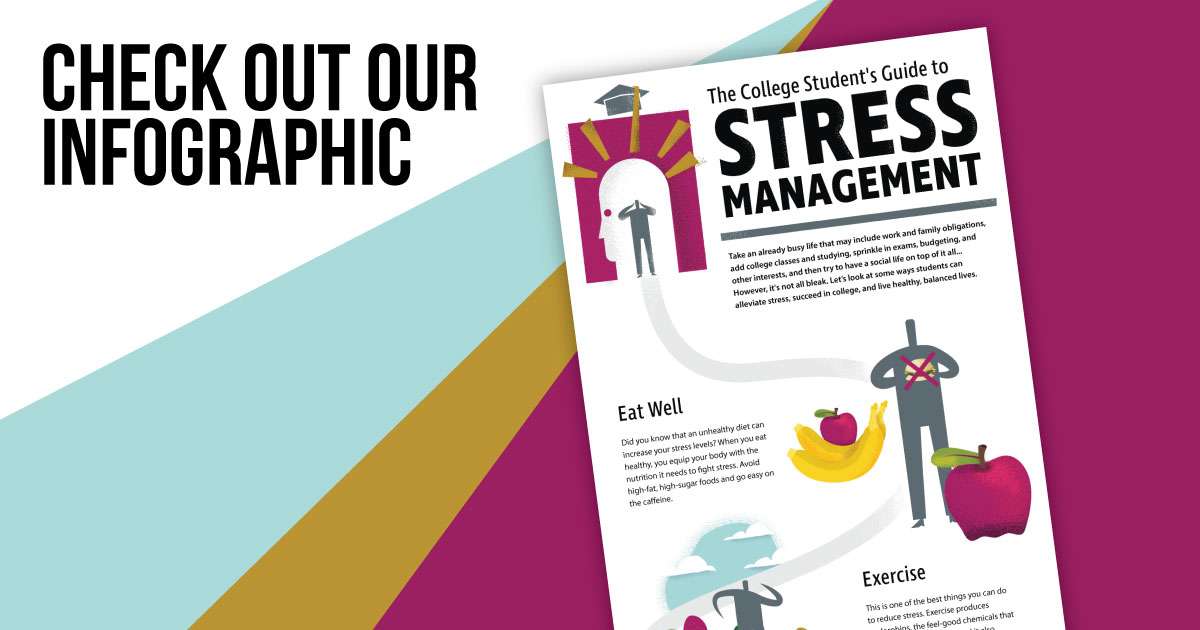Counselling is a talking therapy that involves a trained therapist listening to you and helping you find ways to deal with emotional issues.
Sometimes the term “counselling” is used to refer to talking therapies in general, but counselling is also a type of therapy in its own right.
What can counselling help with?
Counselling can help you cope with:
- a mental health condition, such as depression, anxiety or an eating disorder
- an upsetting physical health condition, such as infertility
- a difficult life event, such as a bereavement, a relationship breakdown or work-related stress
- difficult emotions – for example, low self-esteem or anger
- other issues, such as sexual identity
What to expect from counselling
At your appointment, you’ll be encouraged to talk about your feelings and emotions with a trained therapist, who’ll listen and support you without judging or criticising.
The therapist can help you gain a better understanding of your feelings and thought processes, and find your own solutions to problems. But they will not usually give advice or tell you what to do.
Counselling can take place:
- face to face
- in a group
- over the phone
- by email
- online through live chat services (learn more about online tools for mental health)
You may be offered a single session of counselling, a short course of sessions over a few weeks or months, or a longer course that lasts for several months or years.
It can take a number of sessions before you start to see progress, but you should gradually start to feel better with the help and support of your therapist.
Can you get free counselling on the NHS?
You can get free talking therapies, including counselling for depression, on the NHS.
You do not need a referral from a GP.
You can refer yourself directly to a talking therapies service.
Find a talking therapies service in your area
Or you can get a referral from a GP if you prefer.
Find out more about free talking therapies on the NHS
Private counselling
If you decide to pay to see a private therapist, make sure they’re qualified and you feel comfortable with them.
The cost of private counselling can vary depending on where you live, with a session costing anywhere between £10 and £70.
Many private therapists offer an initial free session and lower rates for students, job seekers and those on low wages.
You should ask about charges and agree a price before starting a course of counselling.
Charities and voluntary organisations
Some charities and voluntary organisations also offer counselling. These organisations usually specialise in a particular area, such as couples counselling, bereavement or family guidance.
You do not need a referral from a GP for an appointment for these services, but you may have to pay a fee to cover the cost of your sessions.
Charities that may offer counselling include:
- Cruse Bereavement Care – for bereavement advice and support
- Rape Crisis England & Wales – for women and girls who have been raped or sexually abused
- Relate – for relationship advice and counselling
- Samaritans – for people to talk about whatever’s troubling them at any time
- Victim Support – for victims and witnesses of crime
You may also be able to access support groups through your local community, church or social services.
Finding a qualified therapist
As counselling involves talking about sensitive issues and revealing personal thoughts and feelings, your counsellor should be experienced and professionally qualified.
Reputable therapists will be registered with a professional organisation that’s been accredited by the Professional Standards Authority (PSA). This means they have met the PSA’s required professional standards to practise.
You can find a qualified therapist in 3 simple steps on the PSA website
Other talking therapies
As well as counselling, there are many other types of psychological therapies (or talking therapies) that involve talking to a therapist about your feelings or problems.
Read more about other talking therapies and how they can help
Video: Talking therapies for stress, anxiety and depression
Animated video explaining self-referral to talking therapies services for stress, anxiety or depression.
Counsellor
Counsellors work with clients experiencing a wide range of emotional and psychological difficulties to help them bring about effective change and/or enhance their wellbeing.
Clients could have issues such as depression, anxiety, stress, loss and relationship difficulties that are affecting their ability to manage life.

Working life
You’ll hold sessions with individuals and groups in a safe and confidential environment. You’ll encourage them to look at their choices and find their own way to make a positive change in their life. Some counsellors specialise in working with particular difficulties such as depression, bereavement, loss or addictions. Others may work with particular groups such as children and young people.
You could work in a wide range of contexts and at different levels. Within the NHS, most counsellors work in Improving Access to Psychological Therapy (IAPT) services. Here, experienced counsellors with specific accreditations undertake training to deliver forms of counselling and psychotherapy recommended for depression such as counselling for depression, interpersonal psychotherapy or dynamic interpersonal therapy.
Some counsellors specialise in working with particular difficulties such as depression, bereavement, loss or addictions.
Others who work in NHS-funded services may:
- provide help, care and support to patients with cancer and their families
- work with individuals who have drug or alcohol-related problems
- help individuals understand and deal with genetic disorders
- provide counselling and support for families with an unplanned pregnancy
Your role will be to build a relationship with your clients. You’ll do this by:
- agreeing with them what will be discussed
- encouraging them to talk about their feelings
- listening carefully, asking questions and checking that you understand a client’s situation
- empathising with the client’s issues, but challenging them when necessary
- helping clients to see things more clearly or in a different way
Where will I work?
You could work in various locations such as community centres, GP surgeries, hospitals, schools or advice centres. You may also counsel people over the phone or by video call.
Entry requirements and training
To work in the NHS as a counsellor, as a minimum you will need to be registered on a counselling or psychotherapy register accredited by the Professional Standards Authority (PSA). Some services, such as IAPT services, also require additional levels of accreditation and that you undertake additional training in a particular therapy delivered by the service. See the IAPT Manual for details.
There are many different types and levels of counselling training available including at diploma, degree and postgraduate level. Some are available on a part-time basis, others full-time. Many, but not all, lead to registration. Visit the Professional Standards Authority website for information about accredited counselling registers.
For some counselling roles, employers may also ask for a clinical/professional qualification, such as being a registered nurse, occupational therapist or social worker. Or you may need a scientific background for some roles in genomic counselling, for instance.
Each employer will indicate their individual requirements so make sure to check the person specification for the role.
Must-have skills
You’ll need:
- to be able to make people feel relaxed
- excellent communication skills
- the ability to positively challenge people
- to be patient, tolerant, and sensitive
- to be empathetic and non-judgmental
- self-awareness and the ability to examine your own thoughts and values
Experience or skills in a particular area may also be required, such as the ability to speak in multiple languages or working in mental health.
Counselling is a talking therapy that involves a trained therapist listening to you and helping you find ways to deal with emotional issues.
Sometimes the term “counselling” is used to refer to talking therapies in general, but counselling is also a type of therapy in its own right.
What can counselling help with?
Counselling can help you cope with:
- a mental health condition, such as depression, anxiety or an eating disorder
- an upsetting physical health condition, such as infertility
- a difficult life event, such as a bereavement, a relationship breakdown or work-related stress
- difficult emotions – for example, low self-esteem or anger
- other issues, such as sexual identity
What to expect from counselling
At your appointment, you’ll be encouraged to talk about your feelings and emotions with a trained therapist, who’ll listen and support you without judging or criticising.
The therapist can help you gain a better understanding of your feelings and thought processes, and find your own solutions to problems. But they will not usually give advice or tell you what to do.
Counselling can take place:
- face to face
- in a group
- over the phone
- by email
- online through live chat services (learn more about online tools for mental health)
You may be offered a single session of counselling, a short course of sessions over a few weeks or months, or a longer course that lasts for several months or years.
It can take a number of sessions before you start to see progress, but you should gradually start to feel better with the help and support of your therapist.
Can you get free counselling on the NHS?
You can get free talking therapies, including counselling for depression, on the NHS.
You do not need a referral from a GP.
You can refer yourself directly to a talking therapies service.
Find a talking therapies service in your area
Or you can get a referral from a GP if you prefer.
Find out more about free talking therapies on the NHS
Private counselling
If you decide to pay to see a private therapist, make sure they’re qualified and you feel comfortable with them.
The cost of private counselling can vary depending on where you live, with a session costing anywhere between £10 and £70.
Many private therapists offer an initial free session and lower rates for students, job seekers and those on low wages.
You should ask about charges and agree a price before starting a course of counselling.
Charities and voluntary organisations
Some charities and voluntary organisations also offer counselling. These organisations usually specialise in a particular area, such as couples counselling, bereavement or family guidance.
You do not need a referral from a GP for an appointment for these services, but you may have to pay a fee to cover the cost of your sessions.
Charities that may offer counselling include:
- Cruse Bereavement Care – for bereavement advice and support
- Rape Crisis England & Wales – for women and girls who have been raped or sexually abused
- Relate – for relationship advice and counselling
- Samaritans – for people to talk about whatever’s troubling them at any time
- Victim Support – for victims and witnesses of crime
You may also be able to access support groups through your local community, church or social services.
Finding a qualified therapist
As counselling involves talking about sensitive issues and revealing personal thoughts and feelings, your counsellor should be experienced and professionally qualified.
Reputable therapists will be registered with a professional organisation that’s been accredited by the Professional Standards Authority (PSA). This means they have met the PSA’s required professional standards to practise.
You can find a qualified therapist in 3 simple steps on the PSA website
Other talking therapies
As well as counselling, there are many other types of psychological therapies (or talking therapies) that involve talking to a therapist about your feelings or problems.
Read more about other talking therapies and how they can help
Video: Talking therapies for stress, anxiety and depression
Animated video explaining self-referral to talking therapies services for stress, anxiety or depression.




